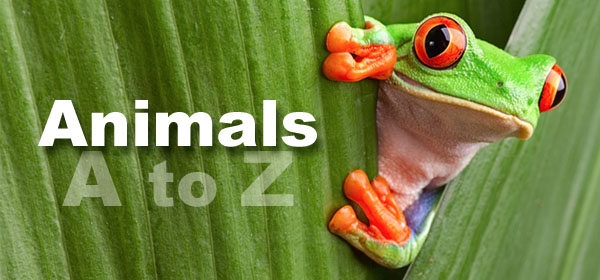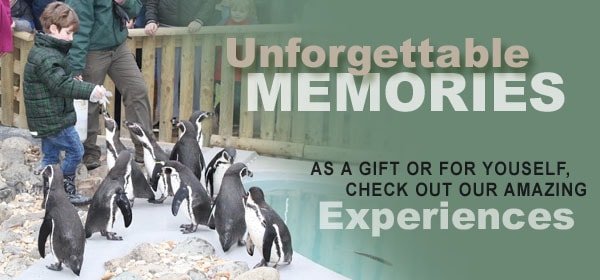Hey everyone, in case you haven’t heard we’ve had a very busy and exciting couple of weeks here at Wingham Wildlife Park due to the arrival of our latest addition; Molly, our new Bornean Orangutan! She arrived at the park on 24th October and has come to us from Twycross zoo as part of a breeding programme organised by EAZA (European Association of Zoos and Aquariums). Visitors may have noticed the building work being carried out on the new exhibit; Rainforest SOS and we can now say it finally has an occupant!
Molly is an 8-year-old Bornean Orangutan and is slowly getting settled into her new home. This is a completely new experience for Molly, moving to a new location and exploring her new home. This can be a little daunting for a young Orangutan. Therefore she isn’t on show to the general public just yet as we want to make sure she has settled in and is comfortable with her new surroundings.
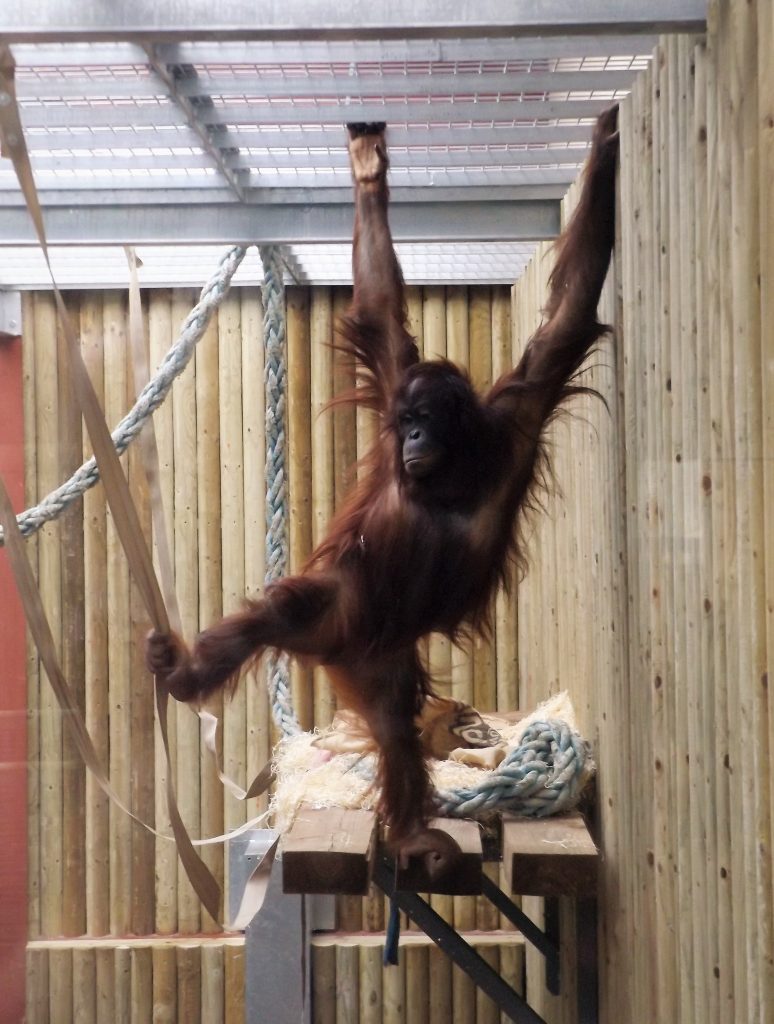
Transporting Molly
So how do you move an animal from one location to another? Well this takes a lot of planning and preparation, meetings and conferences and a lot of back breaking work.
Once it had all been planned when Molly would be arriving, work then began on her training to get her loaded into a crate and transported from Twycross zoo (in Warwickshire) to Wingham (in Kent). Twycross keepers who have been caring for Molly her entire life, worked tirelessly to train Molly to go into the transportation crate of her own accord as opposed to putting her under anaesthetic (which can be dangerous and a big health risk to animals when transporting them). They did this by setting up the crate by the enclosure to introduce her to the crate, letting her have a good look and explore so she was more comfortable with it in her current surroundings.
Then little by little the keepers would reward Molly for going further and further into the crate until she was fully in and then would allow the door to be closed behind her. The keepers were highly successful and extremely pleased with Molly’s progress. On the day of the move, the keepers who have been involved in Molly’s training, carried out a crate training session, got her in the crate almost immediately and then were all prepared for loading her into Wingham’s animal transport van.
The journey from Twycross to Wingham is roughly a 4-5-hour trip- maybe a bit slower when you’re transporting a red ape in the back of your van!
On our end we had to make sure that the new enclosure was completely ready for our new arrival. We were cleaning the bedrooms and communal areas, doing last minute checks on the enclosure and even prepping the odd treat for when Molly arrived.
Molly Moves In
When the transport van arrived we then had to unload the crate and move Molly to her new home. Once the crate was securely fixed and in position, we could let Molly out of the crate into the bedrooms. She wasted no time in coming out and exploring her new surroundings, everything is so new and different for her that it can be a bit of a shock. She will need time to settle and adjust to her new habitat, but she still had food and kongs to keep her occupied on her first night in her new home.
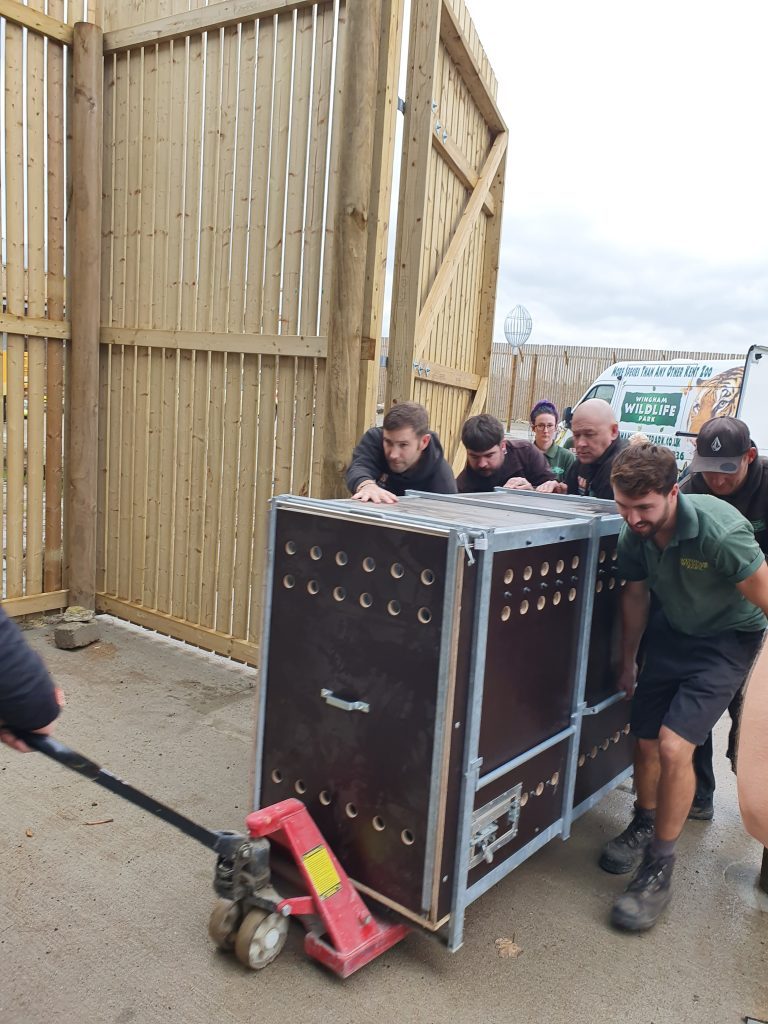
The next day Molly was let out of her bedrooms into the communal areas so that she could explore her new surroundings further. Orangutans are very inquisitive and explorative so we expected Molly to be occupied with searching every inch of her new home.
Settling in
Since her first day Molly has been given access to her entire indoor enclosure as she settles in. As mentioned earlier it can be daunting for a young orangutan to be exposed to a lot of changes all in one go, so we are taking it slowly so that she can be fully settled before she is on view to the public. This doesn’t mean she isn’t enjoying making nests or making the most of her enrichment items we have provided for her though!
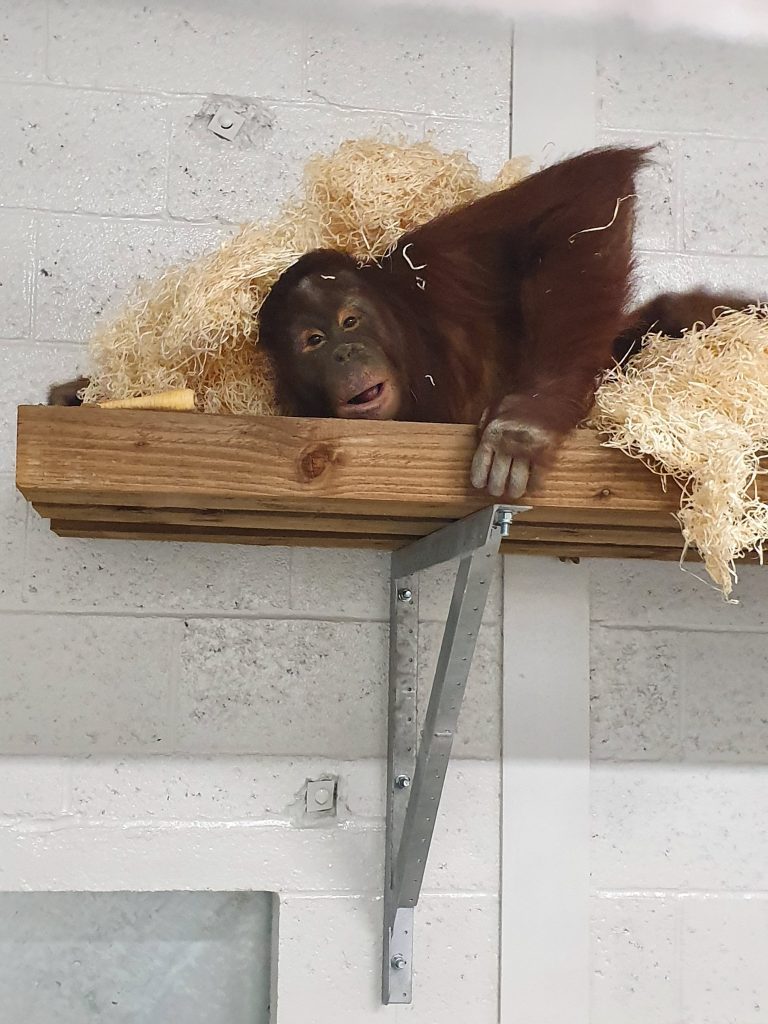
As I previously mentioned, Molly is here at Wingham Wildlife Park as part of a wider breeding programme organised by EAZA. Although there are not plans for Molly to breed here she will be essential to future breeding programmes. She may one day be required to move to another location to help keep a healthy gene flow and new bloodlines for the ever-decreasing population crisis of Bornean Orangutans. Molly will not be alone in her new enclosure and will hopefully have new friends in the near future who will also be part of EAZAs breeding programmes.
I personally am very happy we are part of this new EAZA programme to help with the conservation of these wonderful apes but also due to the fact Orangutans are one of my favourite species on the planet!
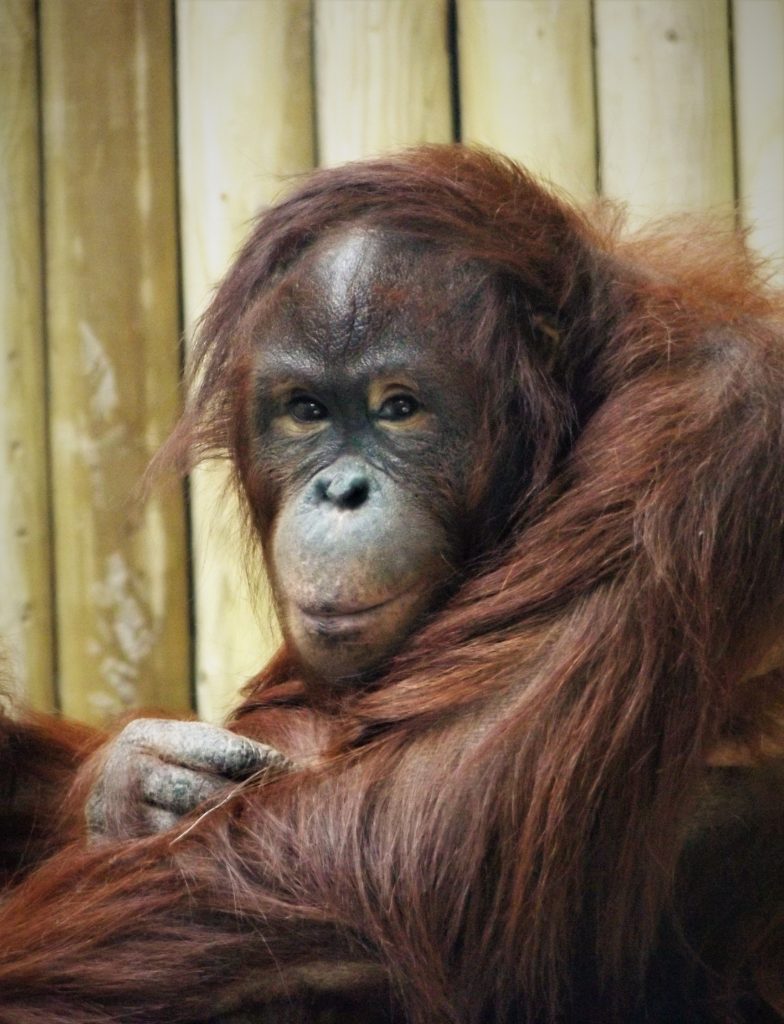
Orangutans are the only great apes found in Asia and also the only great ape that is found outside Africa, and they are the largest arboreal mammal in the world.
Orangutans in the wild
Orangutans, like the other great apes are extremely intelligent, and have shown evidence of tool use and culture. There are 3 species of Orangutan; Sumatran Orangutan (Pongo abelii) Tapanuli Orangutan (Pongo tapanuliensis) and the Bornean Orangutan (Pongo pygmaeus). Molly is a Bornean Orangutan and they are endemic to the island of Borneo, in both the Malaysian and Indonesian Provinces of Kalimanthan and are classified as Critically Endangered.
Being active during the day, orangutans spend the majority of their time in trees, searching for and consuming food. They eat a wide variety of food including figs, durians, jackfruit, lychees and mangos, as well as leaves, seeds, ants, termites and bark.
Orangutans are the slowest breeding of all mammals (except for humans), with females reaching sexual maturity at around 10-15 years of age. Additionally, they generally only give birth to a single young every 6-8 years and young stay with their mother for up to 7 years. With such a low reproductive rate even a small decrease in numbers can lead to extinction.
Along with their low reproductive rate, Orangs have several other issues they face in the wild, such as; habitat loss through deforestation, illegal hunting, illegal pet trade and one of the major concerns; the palm oil industry. Orangutans have lost roughly 80% of their habitat in the last 20 years due to the rapid loss of rainforests which have been bulldozed by palm oil plantations.
To be brief, if the issues facing Orangutans in the wild today are not addressed or do not change in a sustainable and urgent way then orang population numbers will drop dramatically. Sadly they could be gone from this earth within the next 3 decades if current trends are to continue. Therefore, zoos are doing their best to conserve them by being involved in breeding programmes, raising awareness and educating the public on making minor changes to your life that can make a massive difference and will help these beautiful red apes thrive and multiply in the wild.
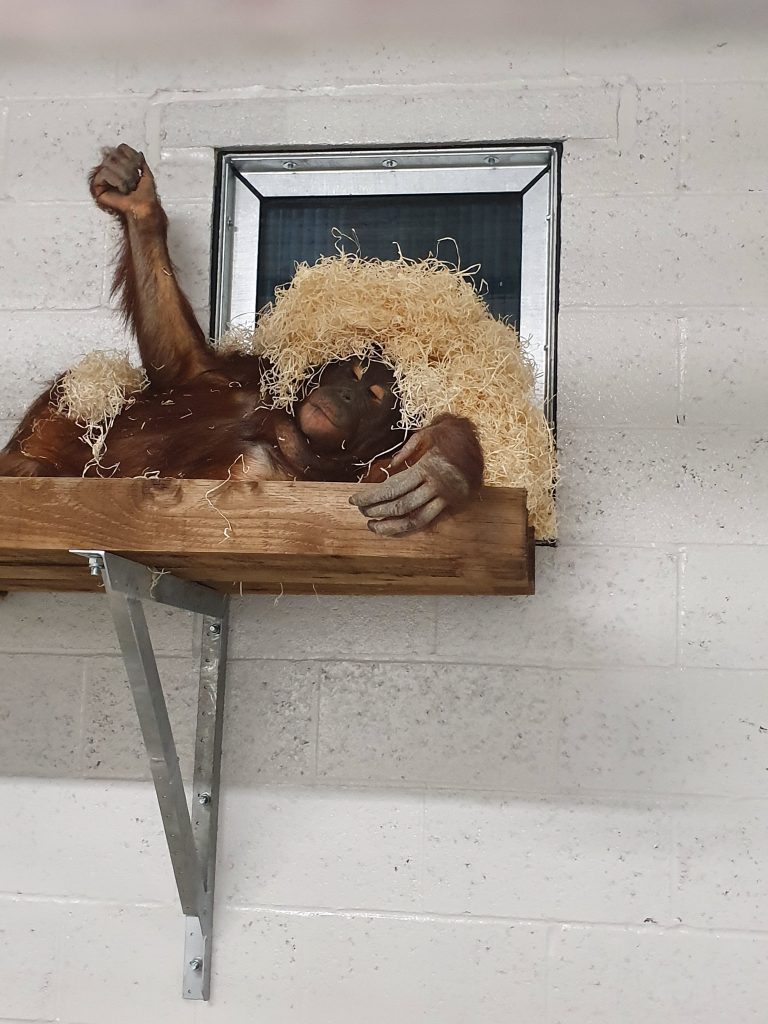
Please keep an eye out on the Wingham Wildlife Park Facebook page and website for when Molly will be on show and get a rare opportunity to see this magnificent animal for yourself. Or if you would like to help Molly settle in we have added several items to our Amazon wish list which we are sure she would love to receive! Thank you!
